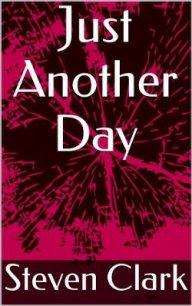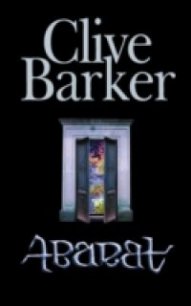Appaloosa - Паркер Роберт Б. (читать книги онлайн бесплатно серию книг txt) 📗
36
We camped at the bottom of the foothills, just before we reached the plain, next to the river, in a grove of trees. It was still daylight, and we had an early, cold supper. No whiskey this day.
“I need some coffee,” I said.
“Yes,” Cole said.
“We get through with this and I’m going to drink ten cups,” I said. “For breakfast.”
“Won’t be dozin’ much that day,” Cole said.
The animals grazed in the shade. We took turns washing ourselves and our clothes in the river, and spread the wet clothes on the grass at the edge of the trees, away from the river, to dry in the sun. I had a change of clothes. But Cole didn’t. While his clothes dried, Cole walked around in a pair of clean drawers I gave him, with his gun belt on.
“Them Indians show up now, Virgil, you ain’t gonna have to shoot ’em,” I said. “They gonna die from laughin’.”
At sundown, with clean clothes, Cole’s nearly dry, we set out along the river as quiet as we could. The sun was down, but the moon wasn’t up yet, and all the light there was lingered from the set sun. Cole went first. He had the lead from the riderless horse tied to his saddle, and his Winchester out of the sheath and cocked. I rode the same way, with the mule. I was listening so hard that I was getting tired, like it was a muscular effort. To our right, the river was still running turbulent out of the mountains. Ahead of us, I knew, it would broaden and meander on the flat plain. Aside from the river, the only sounds we heard were our own as we moved west on the south side of the river. The land flattened, and the pines gave way to cottonwoods along the river. After another hour or so of soft riding, Cole stopped and sat still. I sat beside him.
“Smell it,” he said quietly.
“Campfire,” I said.
We moved on, slower, staying close to the edge of the river, among the cottonwoods. In the moonlight, we could see up ahead where the river bent in an almost U-shaped meander, and on the tip of the point of land it created, we could see the fire. We stood still. Occasionally, we could see movement as someone passed between us and the fire. We tied the animals and went forward as quiet as we could move. The tree cover gave out maybe fifty yards from the camp. But it was close enough. We could both see that it was the Sheltons. I took the glass out and handed it to Cole. He lengthened it and put it to his eye. He slowly swept the glass over the campsite. Without the glass, I could see that there were three people sitting by the fire with a bottle. None was Allie. I looked around. Near the river, there was a cluster of brush, and behind it, in the river, near the bank, there was movement. Cole settled the glass on it. I waited. As Cole watched, I heard the sound of a woman laughing. It was so unexpected that I almost didn’t know what the sound was. Cole watched for a time. Then, without a sound, he handed me the glass. I adjusted it a little and brought Allie and Ring Shelton into focus. They were standing thigh-deep in the river. They were naked. I put the glass down and collapsed it. I didn’t look at Cole. We heard Allie laugh again, and we saw their indistinct shapes come out of the river and sink to the ground behind the brush cluster, and we couldn’t see them. But in the still, night air, we could hear them. I turned and walked several feet back toward the horses and stopped, and walked back, and stood next to Cole.
“Along the river,” Cole said. “Beyond the camp.”
The Indians had found the Sheltons.
“Must have been a ford downstream,” I said. “They went on down the north side of the river, and forded and came back.”
“Bring the animals up,” Cole said.
“Mule, too?”
“Yep.”
I turned and went. It took a little to maneuver three horses and a mule through the trees quietly, but the sound of the river helped cover our sounds. When I got back, the Indians were in the camp, all of them armed. Most of them with Winchesters. All of them sitting their horses, looking silently down at the three men around the campfire. Cole had retreated a few yards back, in among the trees. Three of them detached from the main body and walked their horses over to the brush where Ring and Allie were. They looked down solemnly for a while and then one of them said something to the other two and all three laughed. The first rider was carrying an old Sharps rifle, that must have killed the buffalo we found. He gestured Ring and Allie should join the others. Ring bent over and picked up his pants. He looked silently back at the Indian with the Sharps rifle as he slowly slid one leg on, then the other, and buttoned them up. Allie bent down to pick up her dress, and the Indian leaned from his saddle, with the rifle in one hand, steady on Ring, and took the dress away and flung it into the river. When Ring had finished buttoning, he gestured again with the rifle, toward the campfire. One of the other Indians jumped down from his horse and picked up one of Allie’s undergarments. He tied it carefully onto his lance and jumped back up astride the horse and waved the lance triumphantly over his head. All of the Indians laughed. I was pretty sure they were Kiowas. Ring and Allie walked to the fire. Allie stood naked in the middle of four white men and maybe a dozen bucks.
“We’ll watch a bit, see if they got bad intentions.”
“And if they do?”
“We’ll shoot a couple,” Cole said, “many as we can ’fore they scatter.”
“What about the whites?” I said.
“They’ll run for the tree cover,” Cole said. “Ring and Mackie will both know.”
“And then what?”
“And then we’ll see,” Cole said. “Make sure them horses is tied secure ’fore we shoot.”
I did, and then went back to him. Bragg was holding the whiskey. One of the Indians leaned out of his saddle and took the bottle from Bragg’s hands and raised it to his mouth and drank some and passed the bottle to the buck next to him.
“Any of you bucks speak English,” Bragg said.
The Indian with the Sharps rifle turned his horse toward where Bragg was standing and put the muzzle of the rifle against Bragg’s forehead, then put his hand to his own mouth and made a silencing gesture. Bragg stood frozen. Four of the Indians dismounted and began going through the Shelton party’s belongings.
I whispered to Cole, “We start shooting, they’ll scatter.”
“They won’t charge us.”
“Indians ain’t stupid. They can’t see us. They don’t know how many we are. They’ll scatter and regroup on the other side of that rise.”
“And they won’t just run off,” Cole said.
“No,” I said. “There’s a lot of stuff here they want. Probably includin’ Allie. They’ll settle in behind the rise, see what’s what.”
Cole and I looked for a moment at the low hill half a mile from the river.
“Don’t think they ain’t good fighters,” I said. “They can ride like hell, and they can shoot, and they ain’t afraid to die. Buck with the Sharps rifle probably runs things.”
“We let ’em take what they want,” Cole said. “ ’Cept Allie.”
I nodded, which was a waste of time. Cole wasn’t looking at me. He was studying the Indians, who were collecting the weapons and the whiskey. They loaded these and some foodstuffs into two big bags on a pack animal, then they gathered the horses. Sharps Rifle said something to one of the horse gatherers, and he nodded and saddled one of the horses. The rest were herded to the back of the group, ready to be driven ahead of them when they left. The saddle horse was handed to Sharps Rifle. He took the lead in one hand and, holding the rifle in the other, moved his horse with the pressure of his knees away from Bragg and stopped him in front of Allie. He jerked his head at the horse.
“No,” she said.
Standing naked among all the men, her body looked small and white. The Indian gestured with his rifle. Allie seemed to get smaller; she stepped back as if to shield herself behind Ring Shelton. He didn’t move. He simply watched the Indian. Sharps Rifle said something again, and two Indians jumped down. One of them tossed a blanket around Allie’s shoulders. She clutched it around her as if it were armor. Then the two Indians picked her up and put her on the horse.


